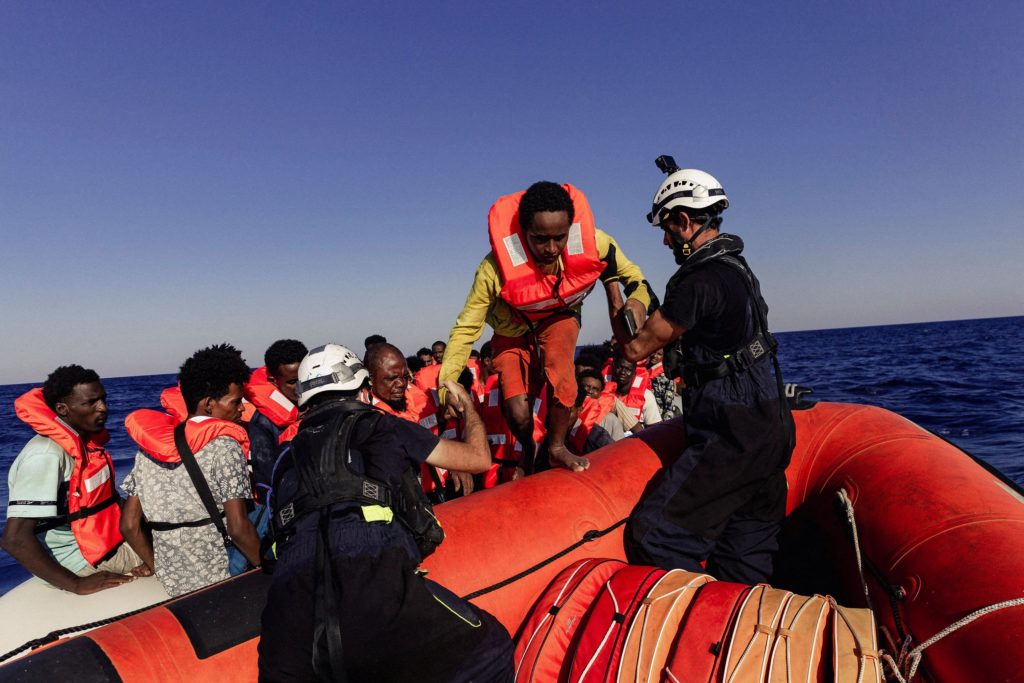In the din of Yaoundé's traffic, thousands of youths comb various offices, documents in hand, in search of jobs.
As frustration sets in, many see a future beyond the country's shores. That is how Jannet left Cameroon two years ago.
A recruiter told her she would have a well-paying job upon arrival in wealthy Kuwait. Her family agreed to go into debt with the recruiter to pay for airfare and other associated expenses.
But the promise of a good job turned into a nightmare in Kuwait. A member of the recruiter's network confiscated her passport, mobile phone and other personal documents and took her to the home of a wealthy family, where Jannet had to work long hours with little food.
"I wake up at 5 a.m. and go to bed at 1 a.m., at times no food," she told Catholic News Service.
For over two years, Jannet slaved for that family, sleeping on the kitchen floor. She said she was forced to use the "toilets" reserved for cats.
"I used to call them (the cats) my brothers," Jannet recalled, because "they were the only family I had out there."
Hers is not an isolated story. Beatrice Titanji, vice president of Cameroon's Trauma Centre for Victims of Human Trafficking, said these modern-day slave markets can be found throughout the Gulf states.
"They actually have booths as you would have in the market, and (people) are sold and bought for domestic service," said Titanji.
"So they move them to their various owners as negotiated before, because there are linesmen here in Cameroon who actually negotiate, get money, sell them at higher prices, sell them depending on the outlook of the victim, as it happened 200 years ago during slave trade. Our children are sold and bought today in the Middle East."
The situation has caught the attention of members of the Symposium of Episcopal Conferences of Africa and Madagascar.
Meeting in Accra, Ghana, July 25-Aug. 1, the bishops examined the causes of migration, the risks involved -- particularly when it comes to irregular migration -- and what the church needs to be doing to help.
"Migration is a normal social phenomenon that is linked to the history of humankind," the bishops said in a statement signed by Cardinal-designate Richard Kuuia Baawobr of Wa, Ghana, president of SECAM.
"This is why migration cannot be considered illegal but could be irregular," they added. They said while the suffering of migrants is not linked to migration as such, migration can involve suffering: "abuse of the social status ... exploitation, ignorance" and fear of poverty.
"We wish to express our pain in seeing our youth leaving our countries, knowing that they are going to suffer and possibly lose their lives, and we lament our inability to stop them from leaving," the bishops said.
They urged young people willing to exercise their right to migrate "to do so in a manner that is administratively acceptable and with full knowledge of the challenges that await them."
"We encourage our youths not to lose hope and to hold on to God through a life of holiness."
The church leaders also called on governments to put in place structures and conditions that discourage irregular migration, such as good governance, employment opportunities, multifaceted security, political and social inclusion, promotion of social justice.
"We urge transit and host countries to respect the rights and human dignity of migrants."
They also challenged Christian communities to "develop an active pastoral care for migration" that should involve welcoming migrants, protecting them, promoting them and integrating them into society.
Jannet eventually returned to Cameroon, sick and frail, with nothing other than the clothes she was wearing. She said when she became sick, her slavers threw her onto the streets.
As she roamed the streets of Kuwait, not knowing exactly where she was going, Jannet eventually came across the Embassy of the Central African Republic. Embassy staff took her to a hospital, helped her replace her stolen passport, and paid for her flight back to Cameroon.
Still, young people in Cameroon say they will continue to risk leaving.
George Atanga, who has a master's degree in chemistry, said he has been looking for a job for the past five years.
"Whether I get a visa or not, I have to leave this country," he told Catholic News Service as he waited in line to take photos for his passport.
"If I don't get a visa, I will travel through Algeria and see if I can get to Spain. My future lies out there," he said.
It's a trend across Africa, a continent where 51% of young women and 43% of young men are unemployed.

